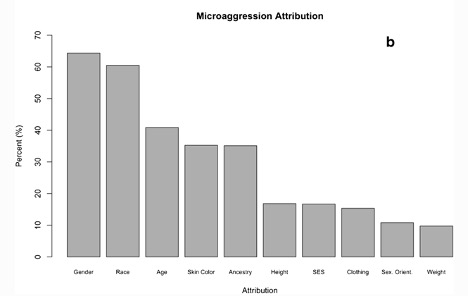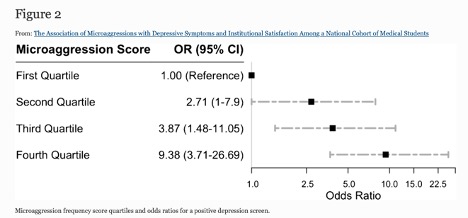Let’s begin our exploration of the impacts of microaggressions using primary literature. We will consider research conducted by Anderson and colleagues in health science students. This cross-sectional study assessed health science student experiences of microaggressions and how these experiences influenced student mental health. The study:
- Included health science learners throughout the United States.
- Measured depression (using the 2-item Patient Health Questionnaire or PHQ-2).
Question
What percentage of study participants reported experiencing at least one microaggression in health science school?
34% reported experiencing a microaggression almost daily.
Question
Using the graph below, which themes were microaggressions most frequently attributed to? Please select the three most frequent.
Question
What do the results presented in Figure 2 suggest?
The following figure illustrates the correlation between microaggression score and depression.
As the frequency of microaggressions increased, the likelihood of a respondent having a positive screen for depression increased. This was shown even after adjusting for race/ethnicity, sex, and other demographic factors including sexual orientation, U.S. citizenship, gender identity, year in health science school, SES, religion, and clinical experience.
Other research indicates experiencing microaggressions can:
-
Cause mental health effects.
-
Create physical health problems.
-
Deplete trust in the healthcare system.
-
Strain relationships.
-
Cause energy to be diverted away from learning and/or productivity.
-
Internalize feelings of worthlessness and heightened feelings of vulnerability.


